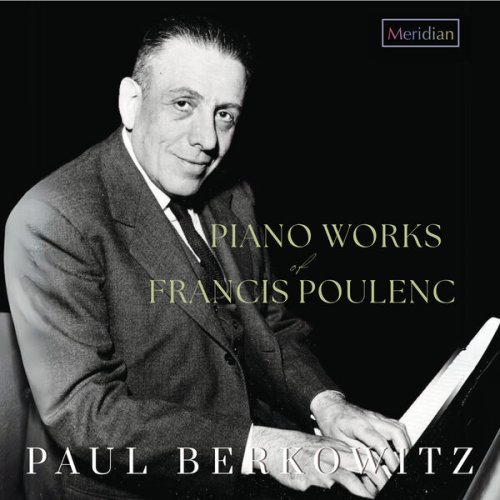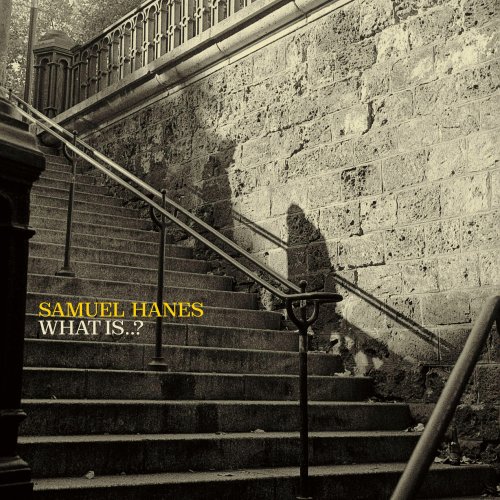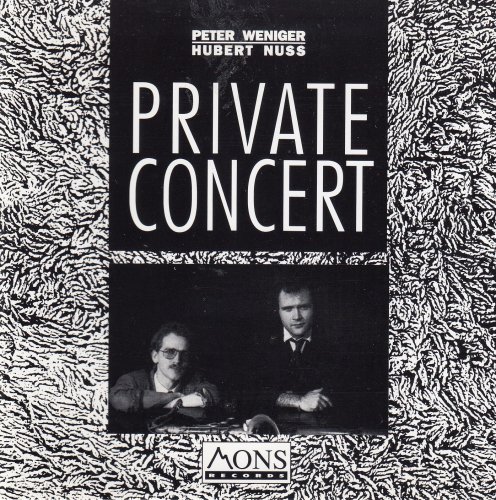Paul Berkowitz - Piano Works of Francis Poulenc (2025) [Hi-Res]

Artist: Paul Berkowitz
Title: Piano Works of Francis Poulenc
Year Of Release: 2025
Label: Meridian Records
Genre: Classical Piano
Quality: flac lossless (tracks) / flac 24bits - 192.0kHz
Total Time: 01:12:49
Total Size: 266 mb / 2.63 gb
WebSite: Album Preview
TracklistTitle: Piano Works of Francis Poulenc
Year Of Release: 2025
Label: Meridian Records
Genre: Classical Piano
Quality: flac lossless (tracks) / flac 24bits - 192.0kHz
Total Time: 01:12:49
Total Size: 266 mb / 2.63 gb
WebSite: Album Preview
01. 10 Improvisations, FP 63 (1932-34): No. 1 in B Minor. Presto ritmico
02. 10 Improvisations, FP 63 (1932-34): No. 2 in A-Flat Major. Assez animé
03. 10 Improvisations, FP 63 (1932-34): No. 3 in B Minor. Presto très sec
04. 10 Improvisations, FP 63 (1932-34): No. 4 in A-Flat Major. Presto con fuoco
05. 10 Improvisations, FP 63 (1932-34): No. 5 in A Minor. Modéré sans lenteur
06. 10 Improvisations, FP 63 (1932-34): No. 6 in B-Flat Major. A toute vitesse
07. 10 Improvisations, FP 63 (1932-34): No. 7 in C Major. Modéré sans lenteur
08. 10 Improvisations, FP 63 (1932-34): No. 8 in A Minor. Presto
09. 10 Improvisations, FP 63 (1932-34): No. 9 in D Major. Presto possible
10. 10 Improvisations, FP 63 (1932-34): No. 10 in F Major “Éloge des gammes”. Modéré sans trainer
11. 2 Improvisations, FP 113 (1941): No. 1 in G Minor. Assez animé
12. 2 Improvisations, FP 113 (1941): No. 2 in E-Flat Major “Hommage à Schubert”. Mouvt de Valse
13. 2 Improvisations, FP 170 (1958): No. 1 in A Minor. Allegretto commodo
14. 2 Improvisations, FP 170 (1958): No. 2 in D-Flat Major. Allegretto
15. Improvisation No. 15: In C Minor “Hommage à Édith Piaf”
16. 3 Novelettes, FP 47/173 (1927-28): No. 1 in C Major. Modéré sans lenteur
17. 3 Novelettes, FP 47/173 (1927-28): No. 2 in B-Flat minor. Très rapide et rhythmé
18. 3 Novelettes, FP 47/173 (1958): No. 3 in E Minor Sur un thème de Manuel da Falla. Andantino tranquillo
19. 2 Intermezzi, FP 71 (1934): No. 1 in C Major. Presto con fuoco
20. 2 Intermezzi, FP 71 (1934): No. 2 in D-Flat Major. Assez modéré mais sans lenteur
21. Intermezzo, FP 118 (1943): No. 3. Intermezzo in A-Flat Major. Très allant, tout droit, sans rubato
22. Presto in B-Flat Major, FP 70 (1934): Presto possible
23. Thème varié, FP 151 (1951): Très calme et sans hâte
24. Mélancolie, FP 105 (1940): Très modéré
![Paul Berkowitz - Piano Works of Francis Poulenc (2025) [Hi-Res]](https://www.dibpic.com/uploads/posts/2025-08/1755322921_paul-berkowitz-piano-works-of-francis-poulenc-2025-back.jpg)
Poulenc (1899-1963) was a pianist himself, and composed solo piano pieces the whole of his artistic life, from the early Trois mouvements perpétuels of 1918, when he was 19 years old, to the third Novelette and last Improvisation of 1959, both included on this CD, not long before his death. When he was 15, his mother had found for him the ideal and congenial piano teacher in the Catalan pianist Ricardo Viñes, who became his mentor and encouraged the young Poulenc in every way. Viñes was a virtuoso pianist who was a major figure in the musical world of the time, performing many of the works of Debussy, Ravel and other contemporary French composers, and who introduced many of the works of Albéniz and other Spanish composers to French audiences. Poulenc would attest that, in particular, Viñes taught him the art of using the pedal, so prominent and so strongly demanded by Poulenc, as will be noted frequently below. (Poulenc felt that pianists never used enough pedal in his music, which asks to be ‘bathed in pedals’ on more than one occasion.) He also introduced Poulenc to Satie and to Stravinsky. Satie took Poulenc into his fold to be a member of the group of young French composers Les Six, while Stravinsky found Poulenc his first publisher, the English firm of Chester Music, who published, among other works, the three Novelettes on this CD. All this time, Poulenc had not had any formal training in composition, in fact had been turned away by Paul Vidal, professor at the Conservatoire, who was offended by the work that Poulenc brought to him and by the dedication to Satie, ‘yelling “your work is disgusting, inept, a load of tasteless garbage…”’. Eventually, in 1921, when he was already a published composer with many public performances to his credit, Poulenc met and began four years of private lessons with Charles Koechlin, French composer and pedagogue, who worked with him on counterpoint, harmony, and compositional techniques.
Through the 1920s, Poulenc was finding his voice. His piano works of this decade – Napoli, an early suite of 1922-25, Trois Pièces of 1918-28, the first two Novelettes of 1927-28 discussed below, and even the substantial and intriguing 8 Nocturnes of 1929-30 – can appear as rather odd juxtapositions of contrasting styles, almost as if the different pieces within each set were written by different composers. The 1930s were when Poulenc really came into his own as a composer for piano solo, and when the bulk of his piano works were written.








